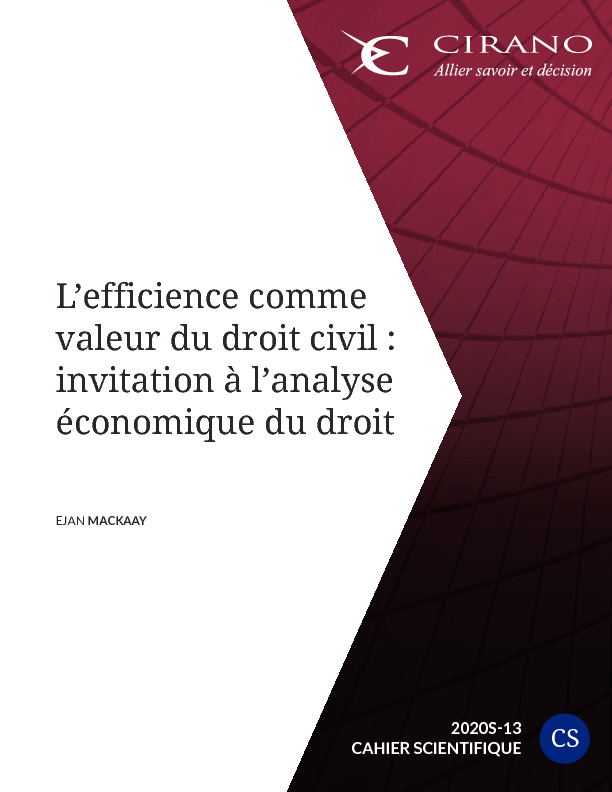L’efficience comme valeur du droit civil : invitation à l’analyse économique du droit
The term efficiency is used here in the sense it has in economic discourse. It is the economic analysis of law that has introduced it in the language of lawyers.
The economic analysis of law was discovered somewhat fortuitously by economists venturing outside their usual turf and looking at legal institutions. Their ventures led to a striking discovery, to wit that most of the classical private law institutions looked framed as if their purpose was to propose efficient solutions to frictions arising in human interaction. Of particular interest to lawyers was the complementary discovery that the efficient solution often corresponds to what lawyers intuitively sense to be the just or fair solution. The economic analysis of law thus seemed to offer a grip on lawyers’ notoriously fleeting concept of justice.
Whilst the economic analysis of law offers clarifying and sometimes surprising insights throughout the different fields of the law, it is not meant to replace legal reasoning or undermine the autonomy of the law, as these bear on the framing, structuring and interpretation of law texts. On the contrary, economic considerations underscore the (relative) parsimony of relying on written texts in dealing with the problems of human interaction. The economic analysis of law complements legal reasoning: it points to the impact of legal rules and allows rules that appear to be aimed at similar purposes to be grouped together; it draws lawyers’ attention to rules whose effects are seriously out of tune with the needs of society.
Experience accumulated over the past half-century shows the economic analysis of law to be a precious tool for scholarly work, as it allows one to see how texts ‘hang together’, how reforms of the law could be planned and how to structure a proliferation of ideas, rules and material for a doctoral thesis. On all these accounts, it should be part and parcel of a proper legal education.




